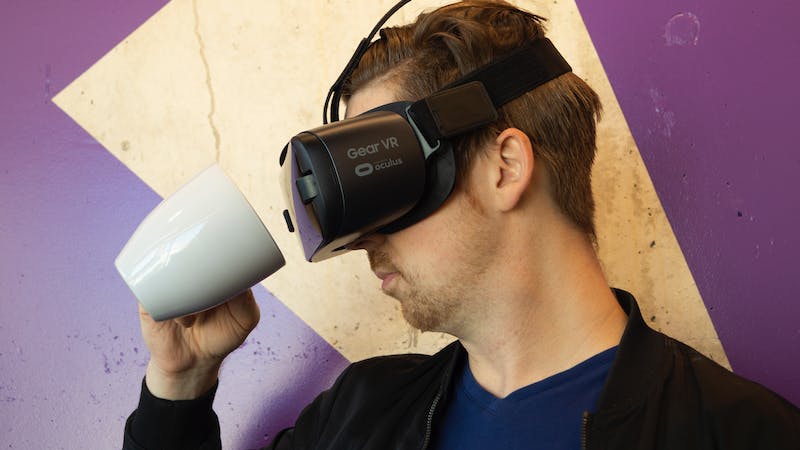Contents
The impact of artificial intelligence on entertainment
Artificial intelligence (AI) has had a significant impact on the entertainment industry, transforming various aspects of content creation, distribution, and consumption.
- Content Creation:
- Recommendation Systems: AI-driven recommendation algorithms on platforms like Netflix and Spotify analyze user preferences and behavior to suggest personalized content, improving user engagement and content discovery.
- Content Generation: AI is used to generate content, such as music, art, and even written articles. For example, AI-powered chatbots can create fictional stories, and AI music generators produce original compositions.
- Script Analysis: AI analyzes scripts and screenplays to provide insights into plot structure, character development, and potential improvements, helping screenwriters and filmmakers refine their work.
- Content Enhancement:
- Visual Effects (VFX): AI enhances VFX in movies and TV shows, making it easier and more cost-effective to create realistic and immersive visual experiences.
- Audio Enhancement: AI can improve audio quality in music production and post-production for film and television, reducing background noise and enhancing sound clarity.
- Video Editing: AI-powered video editing tools can automatically generate highlights, create trailers, and even edit video content based on user preferences.
- Gaming:
- Game Development: AI is used to create non-player characters (NPCs) with realistic behavior, generate game levels, and optimize game performance. It enhances the overall gaming experience by making games more challenging and engaging.
- Player Experience: AI-driven gaming experiences adapt to a player’s skill level, preferences, and playing style. This personalization improves player engagement and retention.
- AI-Generated Content: Games like “No Man’s Sky” use AI to procedurally generate vast and diverse game worlds, enhancing gameplay variety.
- Marketing and Promotion:
- Audience Analysis: AI analyzes audience data and social media interactions to identify target demographics and tailor marketing campaigns for movies, music, and other forms of entertainment.
- Content Promotion: AI is used to optimize the timing and placement of content promotions, such as movie trailers or music releases, to maximize reach and engagement.
- Content Copyright and Intellectual Property:
- AI-powered tools assist in identifying and protecting intellectual property rights by monitoring online platforms for unauthorized use of copyrighted material.
- Virtual and Augmented Reality:
- AI enhances virtual and augmented reality experiences by providing real-time object recognition, spatial tracking, and natural language processing, creating more immersive and interactive environments.
- Content Translation and Localization:
- AI-driven translation tools and language models enable the global distribution of entertainment content, making it accessible to a broader audience.
- Deepfakes and Synthetic Media:
- While a concern in some cases, AI-driven deepfake technology can be used for entertainment purposes, allowing actors to portray younger versions of themselves or appear in historical contexts.
- Interactive Storytelling:
- AI-driven narrative engines create dynamic and branching storylines in video games and interactive media, providing users with more personalized and engaging experiences.
- Concerts and Live Performances:
- AI-powered holographic performances and virtual concerts enable artists to connect with audiences worldwide, blurring the lines between physical and digital entertainment experiences.
AI’s influence on entertainment continues to evolve as technology advances. While it presents exciting opportunities for creativity and personalization, it also raises ethical and regulatory considerations, such as deepfake concerns and copyright issues, which need careful management within the industry.

Artificial Intelligence Entertainment Games
Artificial intelligence (AI) has a significant presence in the world of entertainment games, where it enhances gameplay, character interactions, and overall player experiences.
- Non-Player Characters (NPCs):
- AI-driven NPCs exhibit more lifelike behaviors, making the game world feel more immersive and responsive.
- NPCs can adapt to the player’s actions, making the game more challenging and dynamic.
- Enemy AI:
- AI-controlled enemies in action and shooter games can employ tactics, coordinate attacks, and respond to the player’s movements and strategies, creating more engaging gameplay.
- Procedural Content Generation:
- AI algorithms are used to generate game content, including levels, maps, and terrain. This reduces the need for manual content creation and ensures a more diverse and dynamic gaming experience.
- Narrative and Storytelling:
- AI-driven narrative systems create branching storylines and adapt game narratives based on player choices, providing a more personalized storytelling experience.
- Natural language processing (NLP) is used to facilitate player interactions with in-game characters and provide more realistic dialogue options.
- Adaptive Difficulty:
- AI adjusts the game’s difficulty level in real-time based on the player’s skill and performance, ensuring an appropriate level of challenge and preventing frustration.
- Player Behavior Analysis:
- AI algorithms analyze player behavior and preferences to provide personalized recommendations, such as suggesting in-game items, strategies, or content based on the player’s style and preferences.
- Dynamic Game Balancing:
- AI evaluates game balance by monitoring player actions and making real-time adjustments to ensure a fair and enjoyable experience for all players.
- Voice and Gesture Control:
- AI-powered voice and gesture recognition technologies enable players to interact with games using natural language and physical gestures, enhancing immersion.
- Anti-Cheat Systems:
- AI-driven anti-cheat systems detect and prevent cheating in online multiplayer games by analyzing player behavior and identifying suspicious activities.
- Game Testing and Simulation:
- AI-driven simulation and testing tools evaluate game balance, assess level design, and predict player reactions to different game elements during development.
- Emotion and Sentiment Analysis:
- AI analyzes player interactions, including voice chat and text chat, to detect and respond to toxic or inappropriate behavior in multiplayer games, promoting a positive gaming environment.
- Content Generation:
- AI-generated content includes game assets, textures, and even entire levels. This reduces development time and allows for more creativity.
- Content Recommendation and Discovery:
- AI algorithms suggest games to players based on their preferences and playing history, helping players discover new titles they may enjoy.
- Dynamic Soundtracks:
- AI-driven music systems create dynamic soundtracks that adjust in real-time based on in-game events, enhancing immersion and emotional impact.
AI technologies continue to advance, and their integration into entertainment games is expected to further enhance game development, improve player experiences, and open up new possibilities in game design and storytelling.




